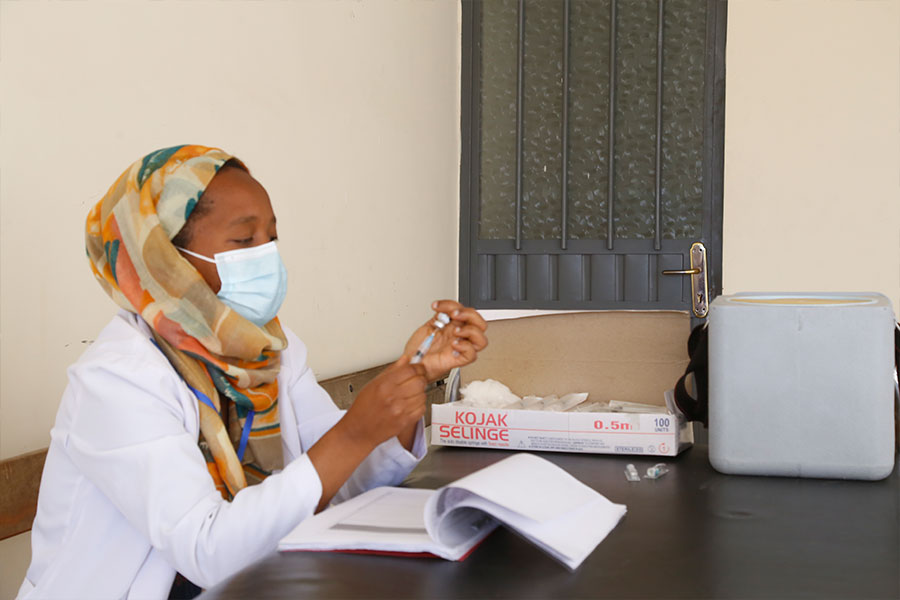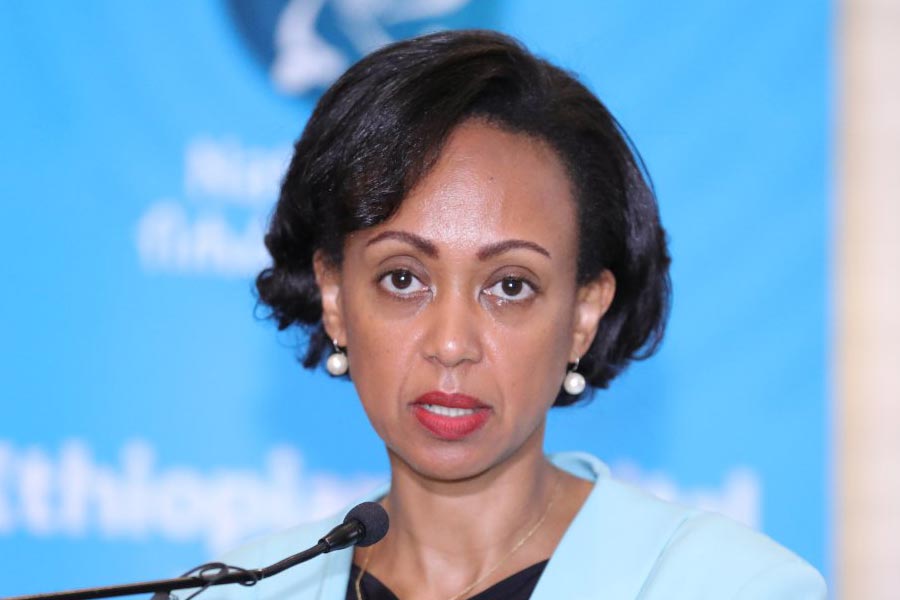
Aug 3 , 2019
By Getachew Yilma
The recent move by the Ethiopian government to facilitate public-private partnerships (PPP) to solve infrastructure problems is the right approach. Ethiopia has a lot of potential for PPP development, especially in the infrastructure sector. Among these, the brownfield projects, operation and maintenance of Addis – Adama Expressway, Diredawa – Dewelle Toll Road, Addis LRT, Ethio - Djibouti Railway and the housing and traffic congestion problems of the capital are some of the potential areas that can be undertaken through PPPs.
From greenfield projects, new expressway projects radiating from Addis Abeba can be studied to connect major cities of the country and neighbouring countries. A new airport terminal can also be considered to augment Bole International Airport, and regional airports can also be assessed. New railway lines can be studied to be developed through private sector involvement.
One of the main challenges of infrastructure development in the country is lack of adequate feasibility studies. To avoid similar challenges in the PPP infrastructure development, arranging a facility for implementing agencies to access finance for feasibility studies can solve many challenges.
Though PPP is a relatively new area for Ethiopia, it has been successfully applied in many developing countries. One of these is the Philippines, and there is a lot Ethiopia can learn from their experience.
Infrastructure spending and enhanced government spending has been considered essential to support sustainable and inclusive growth in the Philippines. PPPs have been promoted as one of the drivers of economic growth in the country. Participation of overseas investors to PPP projects has increased through the government’s effort to improve the governance and investment climate in the country. With the current administration’s intent to further streamline the PPP process, more opportunities are expected to be created for both local and foreign investors.
Infrastructure investment through PPP has become more attractive as the investment climate has significantly improved due to a combination of positive developments in policies and regulating institutions. The government has been explicit in focusing on streamlining the PPP process and being more open to projects proposed by private entities, including accepting unsolicited proposals. The government has also made assertions that more smaller-scale and regionally diversified projects are to be expected, given the intent of the administration to improve infrastructure development in the countryside and areas outside the metropolis.
As of May this year, 59 pipeline projects worth 74 billion dollars are being prepared, which includes toll roads, urban railways, airports, water supply systems, schools and hospitals. The traffic congestion of the Philippine capital, Manila, with a population of 20 million was mainly resolved through private sector innovation.
However, PPP development experienced challenges in its early stage.
Before 2010, there were challenges in project preparation. Due to budget limitations among implementing agencies and weak capability of contracting agencies to formulate projects, there was a lack of well-established support schemes for project development at the government level. This has been addressed through the establishment of a Project Development and Monitoring Facility, which functions to assist in acquiring project development and transaction advisory expertise and independent consultant services for the implementing agencies. Moreover, PPP projects have been publicly advertised to promote information disclosure and to gain further confidence from the market.
There was also a challenge in structuring the contracts. The Manila LRT was designed poorly by transferring the operation and maintenance risk to the government. As a result, the project is suffering due to lack of maintenance and currently operates below its capacity. Counteracting this problem in Ethiopia will require proactive measures to strengthen the PPP Unit and implementing agencies through a capacity building programme.
The Philippines experienced financing problems for PPP projects early on due to foreign exchange and convertibility risks. Undertaking by the Philippine National Bank was the mechanism used to attract the private sector. This can also be one of the challenges the Ethiopian PPP market will face. Hence, the government of Ethiopia needs to take advance measures in the banking sector to assist the private sector to access local banks.
Continuous policy and regulatory changes were demanded by PPP development in the Philippines. It is important to have a continuous study of the policy and regulatory environment of the country so that enabling conditions can be realised in the long run in the Ethiopian PPP market.
The Philippines’ establishment of a strong PPP Centre additionally fostered rapid development. The PPP Centre has become a centre of excellence in knowledge management. This experience gives a strong message to the Ethiopian counterpart, the PPP Unit, to become locally and globally competent.
But a government’s championing of PPPs can also lead to their success. The former president of the Philippines, Benigno Aquino, was one reason for that success. He used to call cabinet meetings to discuss progress on projects every two weeks and challenges were resolved accordingly. This experience has strong relevance for Ethiopia, as there is no champion assigned yet for PPPs in Ethiopia. In this respect, the Prime Minister can use the chance to usher the private sector toward infrastructure development by chairing the PPP Board and closely monitoring and evaluating its activities.
Developing the capacity of local companies through policies and regulations is crucial. A minimum limit of 60pc ownership of companies by a Philippine citizen is a requirement to participate in their PPP projects. Through such policies, local companies’ participation can be enhanced with a clear and transparent support mechanism in Ethiopia too.
The capital market has a strong impact on the financing of PPP projects locally. This requires the local financing system to be improved to facilitate financing to the private sector through the establishment of capital markets in the country.
Ethiopia has many state-owned enterprises with vast resources at hand that can be used in joint venture arrangements with foreign companies at early stages of PPP development to test the market. Additionally, assets can be transferred to the private sector through PPPs rather than through privatisation.
Unsolicited proposals from the private sector can enhance project development. This provides an avenue for the private sector to propose innovative projects that have not been considered by the government, and in return, the government can save on project development costs and time.
By applying these lessons, Ethiopia can prepare itself to benefit from this new development endeavour.
PUBLISHED ON
Aug 03,2019 [ VOL
20 , NO
1005]


Radar | Aug 18,2024

Viewpoints | Mar 13,2021

Fortune News | May 28,2022

Agenda | Jul 13,2024

Radar | Mar 16,2024

Fortune News | Sep 06,2020

Fortune News | Nov 13,2021

Radar | Jun 15,2019

Fortune News | Jan 03,2025

Fortune News | Nov 25,2023

My Opinion | 132151 Views | Aug 14,2021

My Opinion | 128561 Views | Aug 21,2021

My Opinion | 126482 Views | Sep 10,2021

My Opinion | 124091 Views | Aug 07,2021





Dec 22 , 2024 . By TIZITA SHEWAFERAW
Charged with transforming colossal state-owned enterprises into modern and competitiv...

Aug 18 , 2024 . By AKSAH ITALO
Although predictable Yonas Zerihun's job in the ride-hailing service is not immune to...

Jul 28 , 2024 . By TIZITA SHEWAFERAW
Unhabitual, perhaps too many, Samuel Gebreyohannes, 38, used to occasionally enjoy a couple of beers at breakfast. However, he recently swit...

Jul 13 , 2024 . By AKSAH ITALO
Investors who rely on tractors, trucks, and field vehicles for commuting, transporting commodities, and f...

Jul 12 , 2025
Political leaders and their policy advisors often promise great leaps forward, yet th...

Jul 5 , 2025
Six years ago, Ethiopia was the darling of international liberal commentators. A year...

Jun 28 , 2025
Meseret Damtie, the assertive auditor general, has never been shy about naming names...

Jun 21 , 2025
A well-worn adage says, “Budget is not destiny, but it is direction.” Examining t...

Jul 13 , 2025 . By YITBAREK GETACHEW
The Addis Abeba City Revenue Bureau has introduced a new directive set to reshape how...

Jul 13 , 2025 . By BEZAWIT HULUAGER
Addis Abeba has approved a record 350 billion Br budget for the 2025/26 fiscal year,...

Jul 13 , 2025 . By RUTH BERHANU
The Addis Abeba Revenue Bureau has scrapped a value-added tax (VAT) on unprocessed ve...

Jul 13 , 2025 . By NAHOM AYELE
Federal lawmakers have finally brought closure to a protracted and contentious tax de...